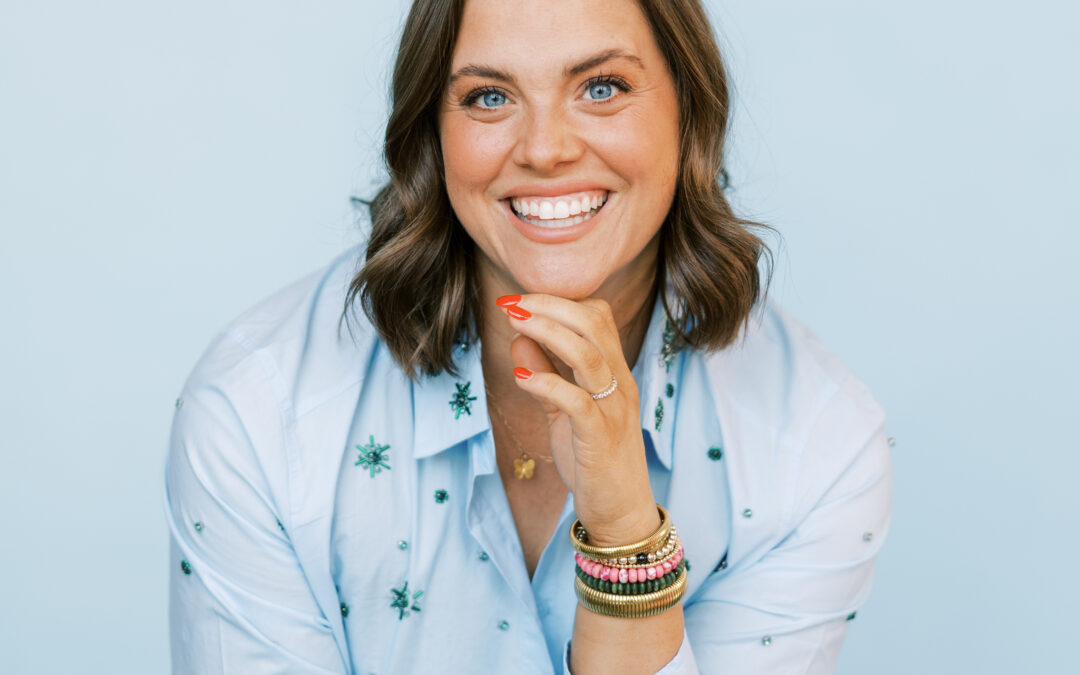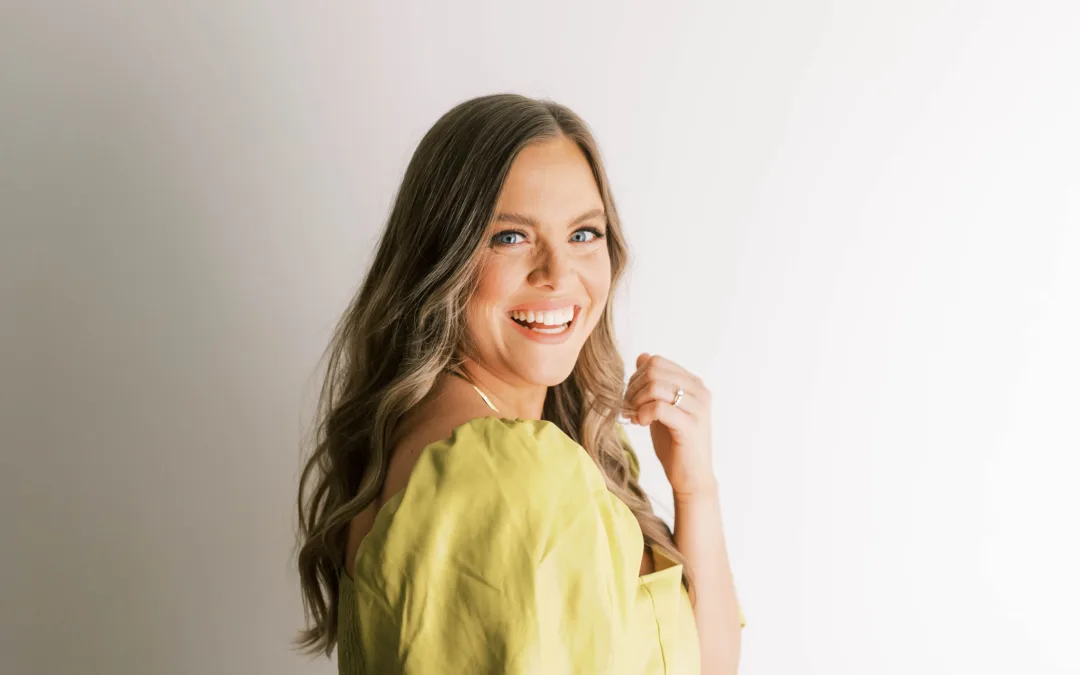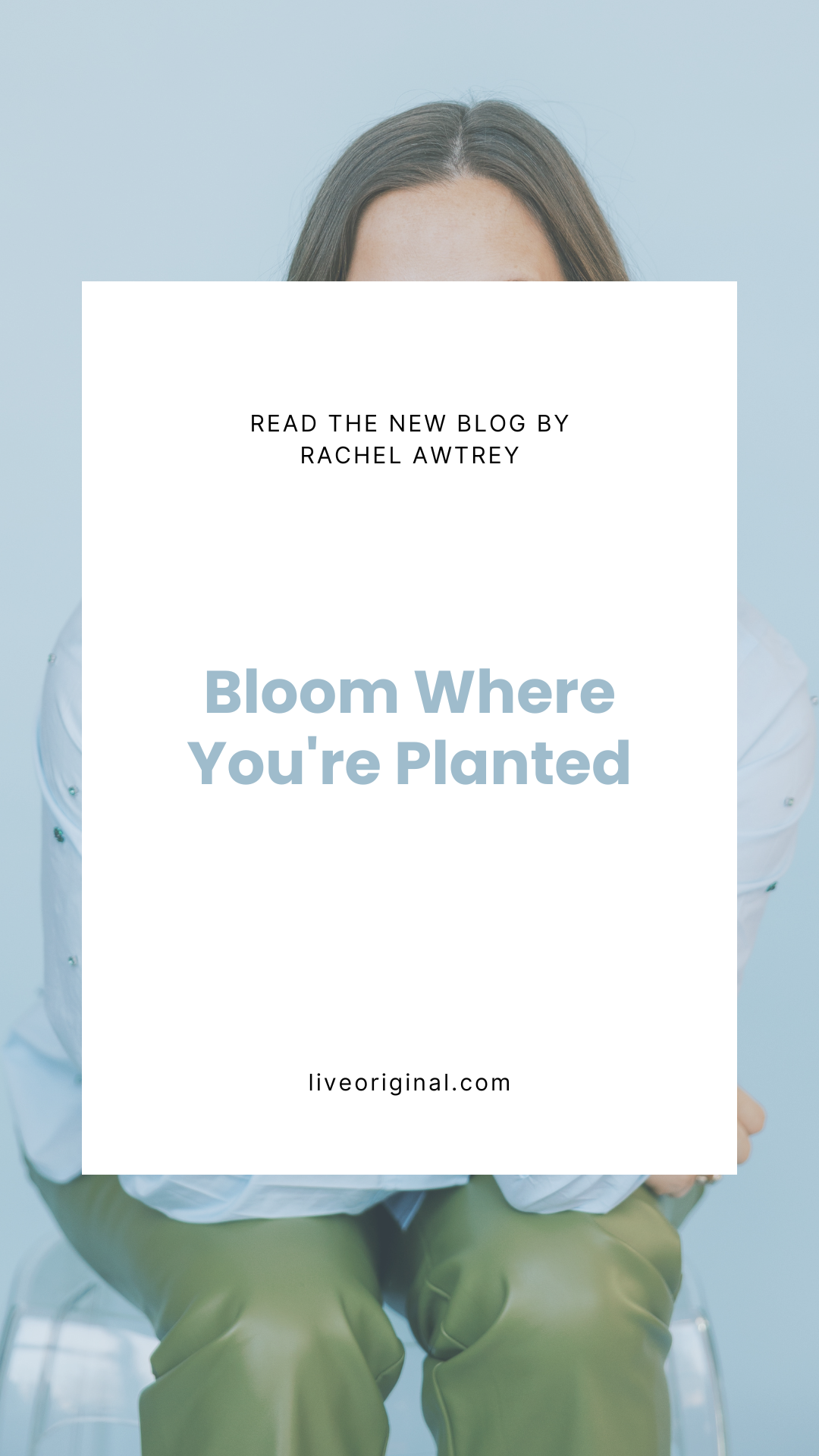
by Rachel Awtrey | Mar 4, 2025 | Featured, Life Advice, LO Library
My friends joke that I have a “black thumb,” which is their kind way of saying plants come to my home to die. I’m guilty and will admit I’m that girl. Even though I know they won’t last very long, I can’t stop myself from wanting to take my best shot at bringing home a spunky or colorful houseplant.
This time, it was an orchid.
Here’s the thing about orchids that I love: they are tall, stunning focal points for any room, which counts as decor in my book. This orchid came, as most plants do, with a stake in the soil that listed care instructions so you “don’t mess it up.” In true Rachel fashion, I took that eyesore out as soon as I got home and tossed it in the garbage.
It’s a plant. How hard can this be? All you have to do is water it!
Weeks went by, and I was the proudest I’ve ever been when it came to my plant portfolio. I constantly sent update pictures to my friend group’s message thread so they had evidence that I was, in fact, proving them wrong. I was redeeming my plant personality! I even gave my plant a name—Ophelia—to officially welcome her as a member of the family.
A few days later, Ophelia’s petals started dropping. Maybe she just needs more water?
I carried the orchid to the sink, turned the faucet on, and let a stream soak the soil. As I took the orchid back to its home base, more petals kept falling off. Thirty-six hours later, every last bloom was gone. I was staring at a naked green twig with floppy leaves.
If I had kept the stake and read the information, I would have known that orchids actually don’t need to be watered every day. A dip in the water so the bottom roots can drink once a week would be enough for a thriving orchid. Because of my overwatering, the roots had rotted. Although there was a chance that Ophelia could be revived, the odds were slim. I’d have to take her out of her pot, cut the rotten roots off, and re-pot her in a container with a little bit more space to grow. And, obviously, I’d have to stop watering her so much.
I was doing my best to treat the symptoms of what I thought was a thirsty plant. But if I had actually known what to do, Ophelia would still be blooming.
Much like me.
Following the world’s directions to loving our lives can be a lot like continuing to water an overhydrated plant.
When I “don’t like life,” I’m tempted to buy the newest trendy accessory, attempt a new recipe, make a new friend, binge a new series, book a vacation or staycation, or—heaven forbid—buy a new houseplant. I’ve been taught to treat my symptoms and try my best to get things right, to make myself happy and pull myself up by the laces of my favorite pair of sneakers (I’m not so much for bootstraps).
But more often than not, that’s not what’s needed. More often than not, I’m only adding to the problem.
How do we stop the madness? Hindsight, they say, is twenty-twenty: if I had called some of my gardening friends before things got so dire for Ophelia, the diagnosis may not have been terminal. After all, there were signs that something was up and Ophelia was starting to die. The leaves were wilted instead of firm, the stem became a bit more droopy, and the blooms weren’t so perky anymore. All of this happened before the petals fell off.
Can we train ourselves to notice the wilting leaves, the droopy stem, and the blooms that are no longer thriving? Can we slow down long enough to get curious instead of charging forward as we always have?
I’m not just talking about houseplants, of course.
Part of liking your life is admitting that, sometimes, you don’t. We can’t fix what we won’t get honest about. If today was challenging, frustrating, or chaotic, let’s call it what it is. Because if the reason for the bad day stays hidden, tomorrow may look very similar. And sometimes it feels really embarrassing to admit that the typical things are piling up, and even though you’re trying so hard to keep things alive, your petals . . . well, they’re starting to droop. It doesn’t mean you’re not capable or resilient or that you have a black thumb when it comes to life.
Really, it’s the first step toward blooming.
Because at the end of the day, it’s not about how hard we try or how much we pour into ourselves—it’s about where we are rooted. Jesus said in John 15:5, “I am the vine; you are the branches. If you remain in me and I in you, you will bear much fruit; apart from me you can do nothing.”
I thought Ophelia needed more water, but what she really needed was the right care. And in the same way, I don’t need more distractions, more striving, or more self-help strategies—I need to remain connected to the true source of life. When I do, I won’t just survive; I’ll bloom exactly as I was meant to.
Because thriving doesn’t come from doing more. It comes from staying connected to the One who gives life. When I try to force growth, I end up with rotted roots, exhausted and empty. But when I trust the Gardener—when I slow down, listen, and align my life with His wisdom—I flourish.
Maybe you’ve been watering something that actually needs rest. Maybe you’ve been trying to fix something that just needs time. Or maybe, like me, you’ve been chasing solutions when all you really need is to stay connected to the source.
When we remain in Him, we don’t have to strive so hard. We don’t have to force things to work. We don’t have to keep guessing. Instead, we get to grow, bloom, and bear fruit in the way we were always meant to.
If you enjoyed today’s blog, be sure to check out Rachel’s new book, Love Your Life (Even When You Don’t Like It All the Time): A Realistic Guide to Unlocking Joy in Life’s Messy, Mundane, and Magnificent Moment, for more encouragement like this. It will be available wherever books are sold but is currently available for pre-order on Amazon.

by Rachel Awtrey | Apr 11, 2024 | Joy, Life Advice, LO Library
“Detergent and creamer. Detergent and creamer.” I reminded myself. Not that this was something I was trying to remember and recall – it was actually something I was trying to remember and not venture off from. You probably know this well: go into a store for one thing, leave with several additional items. Yeah, me too. You don’t know you may need it until you see it sometimes. Not every time but the treat of picking up a bouquet of flowers for your table, the treat to surprise a child and “she just had a baby so I’m sure a ‘pick-me-up’ from the bakery would be a sweet gesture”. Then, there’s the gum at checkout, the yogurt that was on sale that you know someone will eat and the peanut butter you remembered you were actually out of and should have been on the list in the first place. Before you realize it, your arms are full and now you’re regretting you didn’t grab a grocery cart when you first walked through the doors.
You cheer yourself on by saying “let me re-situate the groceries” and “ten more steps and then I’m at checkout” and “oh gosh, my fingers is going numb from holding the bag of grapes on my pinky” while tossing up a prayer that you don’t drop something.
How did detergent and creamer turn into this? Do I need it all?
I really wish I could say grabbing more than I originally needed and trying to make it without dropping anything doesn’t happen that often but I confess it does.
I’ll go even a little further and say that this goes beyond my grocery store experiences.
It happens in the way I manage my time. “I can make that happen this afternoon and pull it off.”
It happens with the way I view life. “If I can just make it through this season, I’ll be okay.”
It happens with the way I take on responsibilities, volunteering for positions, adding more to my plate than I know is possible.
Before I know it, my arms are full (and not in the best way). There are some things I need to be carrying that I know I came for – like the detergent and creamer. But, let’s be candid – there’s a lot I’m carrying that wasn’t on the list. Some of which I can, and need, to put down. And others, I don’t have the option other than to carry.
And that’s life. Carrying around things, picking up, dropping off, switching posture to make things more comfortable, grabbing what we think might be fun, trying to swap for something better every once in a while. Isn’t it?
To put it plainly, we’re all carrying things in our arms. For some of us it’s a job, a family, a dream, grief, difficulties, celebrations, expectations, fill in the blank. Some are light, some heavy, some clunky.
You know what these are for you best and I pray you take a moment to name them. As they come up in your mind, hold them for a moment. Imagine them being in your arms, sharp edges uncomfortably resting on your forearms, fingers bending to hold the weight. It might not even look like a lot at first but the longer they’re held, the heavier they feel.
I’ve been curious, constantly intrigued because you and I have a lot in common: what we’re carrying is heavy. Now that I know this to be true and we’re on the same page about some of the truth of what we’re carrying, can I propose a solution?
Maybe the idea of “freedom” from these things doesn’t come from carrying them differently or solving the worlds biggest problems or learning how to cope and numb so we don’t feel them at all. Maybe the “freedom” comes from putting them down.
I’m not suggesting we become all of a sudden irresponsible and neglect what’s ours to hold. The heaviness of life does not come in a packaged board game box with a “get out of jail free card” when the dice you roll look different than you’d hoped. I just don’t want you to begin to think and eventually believe your only way to lighten your load is to “get out” and “jump ship.”
Through the messiness, there’s something for you here. And if you’re used to holding it all, more than you need, believing that the only way to be able to see the joy is to stop carrying it all – I have an idea for you.
What if the “freedom” we keep talking about doesn’t look like solved problems but it looks like supporting it all differently than holding it with your bare arms.
Grocery stores have grocery carts for a reason. To carry it all for us, to take it from aisle to aisle as we put stuff in and the physics of it all disperse the weight and make it all a bit more effortless.
That’s “joy.”
It’s the gifts that God gives us to see life as fun and enjoy what’s around us even though we’re pushing heavy things around.
It creates more margin to focus on the tasks at hand.
It’s the levity to survive our hardest days.
For the things you don’t have a choice to carry or not (like the child with special needs, the messy divorce, the grief from the one you lost, the heartache you’re left with when harsh words were said, when the dream isn’t on your timeline) – may I suggest you place them in the cart?
Jesus invites us to set these things down and trust his mechanics over our ‘muscling through’. “Come to me, all who labor and are heavy laden, and I will give you rest.” Matthew 11:28
So not only is it available to us, it’s an invitation.
My prayer for you is that ‘joy’ becomes so natural, so easy, a disciplined habit that it is just something you do and that you don’t know any other way to grocery shop than to push a cart and set the heavy things inside.
God is at work in our lives and would do anything to get our attention and bring us back to Him. The beautiful, show stopping moments that take your breath away, the glimpses that make you tilt your head and wonder how it worked out so perfectly that you were able to witness the beauty – let’s have the room to see it.
Rachel Awtrey is a trailblazing influencer and podcaster who defies conventional norms by inviting her audience to peek behind the curtain of her life. Rachel is a mom of two little boys, a military wife and after moving 9 times in her 8 years of marriage, she knows a thing or two about making community wherever she is!
With an unwavering commitment to transparency, Rachel shares her personal journey, triumphs, and challenges, breaking down barriers and inspiring others to embrace their own authentic selves. Through her empowering content, she provides a unique blend of encouragement and practical tips, empowering her followers to navigate life’s obstacles with resilience and grace.
In a culture that often encourages surface-level perfection, Rachel stands out by embracing vulnerability and embracing imperfections. Her refreshing approach creates a genuine connection with her audience, fostering a sense of community and reminding everyone that they are not alone in their struggles. With over 1.5 Million downloads, her chart-topping podcast, Real Talk with Rachel Awtrey (formerly Behind the Bliss Podcast) and social media platforms, Rachel is changing the game, dismantling societal expectations, and encouraging others to embrace their true selves while equipping them with valuable tools to thrive and find joy in every aspect of life.



















